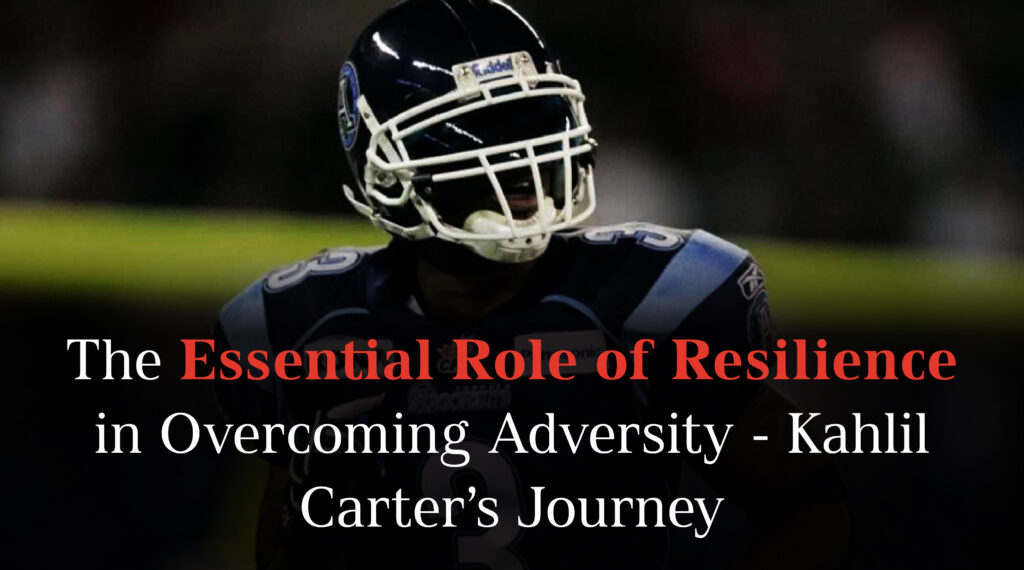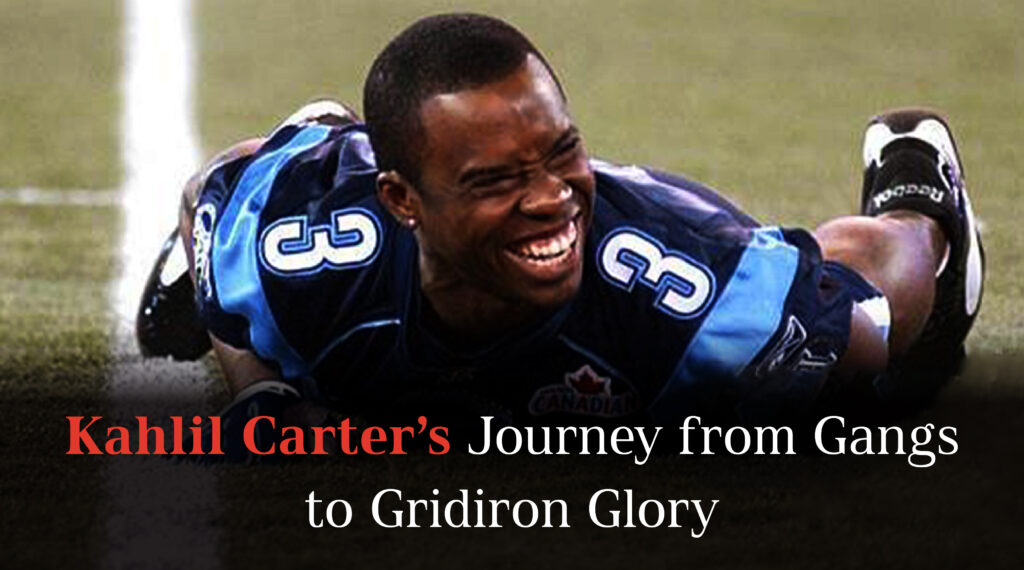I am Kahlil Carter, and my journey in arena football is a story of grit, faith, and an unrelenting drive to succeed. Growing up in the tough streets of Little Rock, Arkansas, I faced challenges that could have easily derailed my dreams. Yet, through my passion for football and my belief in God, I carved a path from adversity to achievement, leaving a lasting mark on the Arena Football League (AFL) and Arenafootball2 (AF2). In my memoir, The In Crowd: Life, Legacy, Leadership, I share how I rose from an underdog to a celebrated player, the leadership I brought to the field, and the lessons I hope my story imparts. This is my legacy in arena football—a testament to resilience and determination.
From the Streets to the Arena
My childhood in Little Rock during the 1980s and 1990s was no easy ride. Gangs, drugs, and violence were part of daily life in my neighborhood. My mother battled substance abuse, and my father was largely absent, leaving me to lean on my older brother, Aaron Jr., for guidance. Despite these hardships, I held onto my dreams. My mother’s fierce determination and my grandmother’s focus on education pushed me to strive for more. I refused to let the streets define me, choosing instead to channel my energy into football and my faith.
My college years at the University of Arkansas and Southern Arkansas University were a test of my resolve. Injuries, academic struggles, and the responsibilities of becoming a father at 18 challenged me. Football, which had been my escape, seemed out of reach after limited playing time. But in 2000, a door opened with the Arkansas Twisters in the inaugural season of AF2. I prayed for a chance to prove myself, and God answered. At my first workout, I felt like I was helping others try out, but my determination caught the eye of head coach John Jenkins. He saw something in me—a spark of potential and unshakable confidence. That confidence carried me to become the MVP of training camp, a moment that changed everything.
That first season with the Twisters was unforgettable. I started as a backup quarterback, but my versatility shone through. One game in Greensboro, North Carolina, stands out. It was the night my father passed away, and as I played, I felt his spirit with me. I threw for 200 yards, scored multiple touchdowns, and ran wild on the field. That game wasn’t just a personal triumph; it showed me what I was capable of under pressure. It laid the foundation for my legacy in arena football as a player who could turn pain into performance.
Adapting and Excelling Across Leagues
My career in arena football wasn’t just about one team or one moment—it was about adapting and thriving no matter the challenge. After my breakout with the Twisters, I signed with the Milwaukee Mustangs in the AFL in 2001. Under coach Rick Frazier, I transformed from a quarterback to a multi-positional player, excelling as a wide receiver and defensive back. My teammate Gary Compton once said I competed every single day, and that drive earned me a spot on the AFL’s All-Rookie Team. I was learning to navigate the fast, high-scoring world of arena football, and I loved every minute of it.
When the Mustangs folded, I joined the Toronto Phantoms, where I sharpened my skills as a defensive back. Practicing against top receivers like Damian Harrell made me better, preparing me for bigger stages. The Phantoms folded too, but I didn’t let that stop me. I briefly tried out with the Tampa Bay Storm, a powerhouse team, and though I didn’t make the roster, the experience fueled my return to the Twisters. That second stint was when I truly made my mark. I set a professional football record for interceptions in a single season and won the AF2 Defensive Player of the Year award. At 6’1” and 185 pounds, with a 4.3-second 40-yard dash, I was unstoppable. I was determined to be the best, and that drive caught the attention of NFL scouts, leading me to the Buffalo Bills and NFL Europe.
The instability of arena football—teams folding, rosters shifting—tested me, but I kept pushing forward. I played in the CFL with the Toronto Argonauts and Montreal Alouettes, proving I could excel across leagues. Each move, from AF2 to AFL to CFL, showed my ability to adapt and succeed. My versatility and resilience became the cornerstone of my legacy, proving that no obstacle was too big.
Leading by Example
My legacy isn’t just about stats or awards—it’s about the leadership I brought to the game. On the field, my confidence sometimes came off as arrogance, but it was what drove me. My teammate Donnell Fletcher once said I had a fire inside me, sparked by anyone who doubted me. That fire made me a leader, rallying my teammates in crucial moments. In Toronto, I bonded with CFL Hall of Famer Damon Allen, who saw me as a leader on the team. My contributions to the Argonauts’ 2006 Eastern Divisional Championship run showed I could inspire those around me.
Off the field, I poured my heart into mentoring others. After my playing days, I worked at an alternative high school, guiding at-risk youth who faced struggles like mine. My principal, Charles Jones, believed in my ability to be a role model, and I took that responsibility seriously. Later, as a coach, I drew on the lessons from mentors like Jenkins, Frazier, and Jay Gruden. They taught me the value of team chemistry, a concept I embraced from Toronto’s coach Rich Stubler: it’s not about the twelve best players, but the best twelve together. Coaching became my way to pass on my legacy, shaping young athletes with the same passion I brought to the field.
Lessons from My Journey
My story is one of triumph over adversity, and I hope it inspires others. Growing up surrounded by gang violence and family struggles, I could have given up, but my faith kept me grounded. I believed no weapon formed against me would prosper, and that conviction carried me through losses—my father, grandfather, and uncle—and professional setbacks like injuries and team cuts. Each challenge made me stronger, teaching me to harness adversity as a tool for growth.
I also learned the value of perseverance. Arena football was unpredictable, but I never stopped reinventing myself. When coach Brenard Wilson asked if I wanted to play or watch, I chose to play, staying a star in the AFL and CFL rather than chasing an uncertain NFL dream. That choice reflected my commitment to my craft and my family, who relied on me.
My nickname, “Kahlil ‘The Real Deal,’” given to me in high school, captures who I am—authentic and determined. I faced discrimination, injuries, and doubts, but I stayed true to my purpose. I want young athletes to know they can do the same. Proclaim your gifts, embrace your path, and never let challenges define you.
Conclusion
My legacy in arena football is one of resilience, versatility, and leadership. From my breakout with the Arkansas Twisters to my record-setting seasons and my role as a mentor, I’ve tried to make a difference. My memoir, The In Crowd, is my way of sharing that journey, showing how I turned obstacles into opportunities. As I reflect, I’m grateful for the coaches, teammates, and faith that guided me. My story isn’t just about football—it’s about believing in yourself and inspiring others. I hope my legacy lives on, encouraging the next generation to chase their dreams with the same fire I carried.


